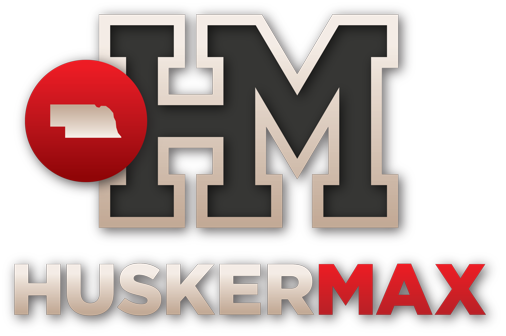I'm very grateful for Austin's bluntness in his interview after the first spring practice because it was very clarifying to see and hear how upset he was with some of the play calls last year, and how he felt like his input wasn't being given its proper weight. He even gave clarifying examples of exactly what he meant by letting it be known that he wanted to run the ball at the goalline against Purdue (instead of the shuttle pass), and that he wanted to run more directly into the heart of Iowa's defense versus trying to get to the edges. I agreed with both at the time, so I'm glad to hear that his voice will now be a strong part of the mix.
The bottom line as far as how things will look differently this year is that if things are going well, we (as fans) won't be thinking about it at all. Putting two and two together, Austin would like to have more power football, and he's been promoted, and Walters is gone, so we should expect more power football. I doubt that any Husker fans are crying at the thought of that. If you read between the lines as to Lubick's bio and how others describe him (versus Walters), Lubick is much more of a details kind of guy, which is what was missing in offensive execution since Frost arrived. Austin said that he wants to run a few things, and run them flawlessly, which makes it sound like they're all singing from the same hymnal.
For those who've never coached before or if you haven't used coaches' headsets, the offensive staff will all be on one frequency with an open mic that allows each offensive coach with a headset to speak and listen as though the other coaches are beside them. You mute your mic by putting it up in the air, and you "mute" the volume by taking the headset off. Otherwise, there is a conversation going on throughout the game. Besides the coaches with the headsets, there are analysts (Quality Control, Grad Assistants, et al.) in the booth who are watching for specific things, all the time. Someone is always keeping track of who's on the field, and who is going in and coming out. Once the play is called, everyone has a job to do. When the teams line up, the OC (usually) will call down to the coach what the defensive formation is, and they'll communicate if anyone is acting like he might be blitzing or shifting. When there is motion, they'll call out if the defense adjusted as a zone defense or man-to-man. The QBs coach might be asking something such as, "Where's the Free Safety?" The WRs coach might ask who's in coverage on which WR. The O-line coach might be asking how each or every D-line is lining up in relation to the O-line (the D-lineman's "technique). Even a lot of that stuff will be shared by the OC (or whoever is in the booth) as soon as they line up to snap if it's something that they know the coach(es) will be asking. As play caller, Frost might say to whoever's in the booth, "Let me know if the OLB does [x]," because he will often be calling the play to set up another play if they're shifting to stop what's coming. For every RPO called, the whole crew in the booth will be mindful of how the defenders being read are lining up and responding in action because that's what Frost, the QBs coach, and possibly the RBs coach is going to want to know.
After the play is run, the OC will call down to Frost where the ball is spotted, down & distance, and as much other info as possible, as quickly as possible, preferably even before the referee has even signaled anything. The others in the booth will communicate who is coming out of the game, going into the game, etc. on the defensive side. If the prior play was a 3rd down, for example, Frost might immediately ask for a suggestion for a 4th down call. He'll have his own play sheet, and he'll make the call, but sometimes you just want to hear what everyone else is thinking. If everyone is unanimous, and you know it'll work, you usually run it; if everyone is unanimous, and you don't think it'll work, you usually fake that play and run a companion play off of that fake because you assume that the defensive coaches will also assume that the play everyone recommends is coming. Frost prides himself on having his play sheet as simplified as possible (it's color coded on one side of one sheet of a laminated sheet of paper) and by practicing quick-thinking and decision-making as much as possible. What that often means is that he has mentally rehearsed scenarios enough that he has the equivalent of a play script memorized for most anticipated scenarios. When things are clicking, everything often snowballs, and it all clicks better and faster, and everything works better. When the defense isn't doing what you expected--which is what happened literally in the first 4 games of the season when 4-3 team after 4-3 team suddenly came out in a new and novel 3-4 defense--it can mess with a lot of things both in the gameplan and in the confidence of the play-caller. This is why defenses try to keep things unpredictable. As soon as Frost calls the play, the play is signaled in, the QB takes it and communicates it to the players. Sometimes the O-linemen also look over for any signals from the O-line coach if they have some special options for blocking calls in certain situations. They line up, the Center identifies the Mike-LB. The O-line communicates their blocking call with each other (which often isn't called by the Center), and that tells each O-lineman where his first step will be, and who his hands and eyes should be targeting at the snap. If the defense shifts before the snap, they'll call out new blocking calls as needed, or (like the '94 O-line) they'll sometimes call out dummy calls just to make the defense think that they're doing something unusual. Simultaneous with the Center identifying the Mike, the QB calls out the defensive alignment, and usually points to the Free-Safety or a shifted OLB or Strong-Safety or someone similarly placed to make everyone aware of what he's seeing, which also signals to the WRs and the RB what to expect. The QB also has to listen for the line calls, and he is supposed to follow what they tell him, so this might also be when he decides to communicate something extra, such as moving a RB or H-back around if he anticipates a blitzer, or if the play will need an extra blocker on one side. If there's a WR in motion, the QB is looking to see the shift of the defense. If the defensive shift affects the play call, he might stop and communicate to the O-line, WRs, and RB that they're running the companion play, or ... he might make a dummy call to make the defense think that he's running a companion play, but it's just clarifying to the offense to run what was planned. Then the ball is snapped, and you do it all again.
The simplest play calls use basic blocking schemes but move players around to change the defensive look by formation rather than having to expand the playbook. The most respected offensive minds in all of football--Gus Malzahn, Chip Kelly, et al.--often have relatively few plays that they run, but they run them out of an almost infinite number of formations and with variations in personnel groupings. Do it right, and it's as easy as possible for the QB, and the coaches have basically the equivalent of a simple computer programmer's script for play calling: "If Defense A, run play H," and so on.
What else is supposed to be improved with the changes of bringing in Lubick and promoting Austin is how that script is put together. Almost every Run-Pass Option is a collection of interchangeable parts, so now Austin will be able to stress which run plays he wants to emphasize against that week's opponent, and it will get baked into the cake as they're creating the script. If Austin wants Inside Zone to the left for his money downs (3rd or 4th and short), those will be placed into the RPOs that go into the play-calling sheet for that week, which will be what Frost is rehearsing and practicing all week in practice. If the plays don't change, but the position coach wants to fine-tune how someone does something in their technique for that play--a WR could run an out pattern instead of a come-back route, or a RB's aiming point on a running play could shift his path to the outside hip of the Guard (for an expected 3-man front) instead of the inside hip of the Guard (for a 4-man front)--they'll drill that play that way all week, and they'll just be rehearsing what's going into the play script without spending time on the plays that aren't expected to be run that week. Each week, some plays are set aside while others are promoted or emphasized, and the guys in Quality Control are supposed to be scouting themselves to identify tendencies to communicate to Frost what the opposing defense should be expecting so that the offense can be adjusted to attack what they're expecting.
Wash. Rinse. Repeat. That's what coaching looks like from the offensive play-calling perspective. After the game most coaches want to rush back to watch film to understand why specific plays didn't work, and that's where they'll look for if it was player error, defensive play-making, or just a poor play call or play scheme. You make adjustments, and you keep going.



